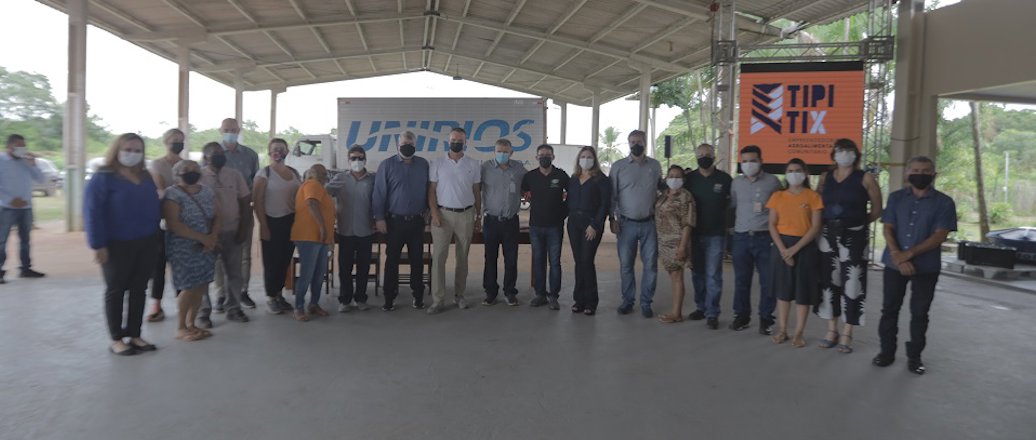Last Wednesday (10), the processing unit of the Tipitix - Community Agrifood Entrepreneurship project was visited by the Norwegian government representative, Odd Magne Rudd; Hydro's Executive Vice President of Bauxite and Alumina, John Thuestad, and Company Directors; in addition to authorities, such as the mayor of Barcarena, Renato Ogawa. They learned about all the stages of the initiative developed by the Hydro Sustainability Fund (FSH, in Portuguese), in partnership with the Mitsui Bussan do Brasil Foundation, in the municipality of Barcarena, which aims to increase the quality and added value of local community-based agrifood production, enabling reach different markets and consumers. On the occasion, they were also able to dialogue with the producers benefited by the project about the results already achieved since the beginning of the Tipitix project.
The ambassador and his team also visited Alunorte, Hydro's alumina refinery, and Mineração Paragominas, the bauxite mine. The Company has been present in Brazil since 1970 and maintains a large part of its operations in the State of Pará, with an integrated production chain, which also includes Albras, the aluminum factory. About 80% of Hydro's employees are from Pará. This is the ambassador's first visit to the Amazon. “It is important to see how Hydro produces alumina and aluminium in Brazil. I know the company tries to do this as best as it can and wants to further improve its operations. As an ambassador for Norway, I have high expectations about how Hydro operates in Brazil and I am pleased to see Hydro's local partnerships and involvement with the municipality,” said ambassador Odd Magne Rudd.
Hydro's Executive Vice President of Bauxite and Alumina, John Thuestad, highlighted the strength of the partnership between public authorities and private initiative for the development of Barcarena. “Hydro wants to be part of this movement and the Tipitix project is an example of that. We saw that the municipality's technical school is also in progress. The combination of entrepreneurship, technology and education will result in new opportunities and we can learn a lot from this project. We want to work together to see everyone shine. I can guarantee that Hydro is committed to continuing with local partnerships”, he emphasized.
For Mayor Renato Ogawa, the positive agenda with the Norwegian ambassador and the board of Hydro reinforces Barcarena as a gateway to the Amazon. According to him, the 144 cities in Pará are represented in the municipality's population. He pointed out that the municipality will be strong and large if the public administration is close to communities and the private sector. “I emphasize that we are always willing to work together on projects that contribute to advances in infrastructure and support for public management. Barcarena is a prosperous municipality that still needs to make progress on social issues. And Norway is an important country to be with us in sustainable projects”, he said.
About Tipitix - Started in March of this year, the project also offers marketing and commercialization strategies, facilitating the access of producers to small commercial establishments in the region, industrial restaurant operators in Barcarena and innovation startups in the agrifood chain. They receive technical assistance support in adapting their business model; infrastructure for processing its production; design, credit and commercial advice to place the product or service on the market; as well as administrative and accounting support for the procedures related to the formalization and management of the business. The cycle will last for four months. In the first year, it will serve around 200 family producers of cassava and derivatives, fruits, vegetables and various other products from more than 20 rural communities. The initiative represents an investment of BRL 1.5 million, carried out by the Hydro Sustainability Fund (FSH) and the Mitsui Bussan do Brasil Foundation.
: November 12, 2021







